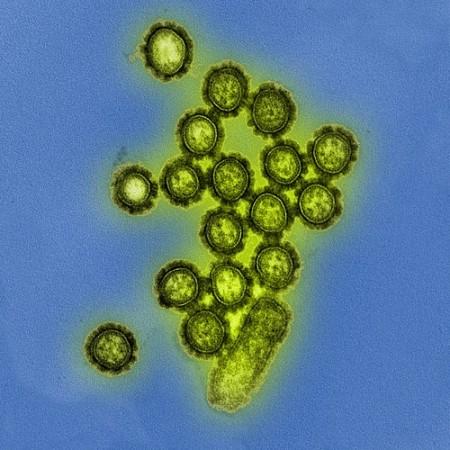
The southern state of Tamil Nadu has reported another case of swine flu-related death.
Dharshini Senthil Kumaran, a two-year-old in Chennai, was undergoing treatment for the deadly disease when she died at a government hospital on Sunday, health officials confirmed.
Surprisngly, they said the girl died due to steroid-resistant nephrotic syndrome, a disease related to kidneys. "It was the kidney problem that is the first cause of death and not the respiratory infection," director of public health K Kulandaisamy, told Times of India.
Dharshini, after being diagnosed with the kidney disease in August, was admitted to Dr Mehta Hospitals in October and underwent treatment for nearly ten days. She was again admitted to the hospital on 6 November for fever, cough and swelling on the legs. She was moved to the intensive care unit of the hospital, after her condition worsened and she exhibited breathing difficulties. It took one more week before the doctors decided to test her for H1N1. Results of both throat swab and blood sample came out positive on 15 November.
Steroid-resistant nephrotic syndrome is caused by mutation in a gene that plays a major role in the production of a protein called podocin. Podocin is needed for proper function of glomerulus, a small cluster of blood vessels in the kidney. The condition is normally detected with excess levels of protein in the urine, high cholesterol and swelling in the body. The disease does not respond well to the steroid treatment.
Health officials said that the steroid treatment for the kidney disease made the girl more "vulnerable to the virus."
"The only treatment for the condition is steroids, so though she was resistant to it, the hospital gave her steroids which is an immunosuppressant drug," a deputy director of health told The Times of India.
Swine flu has claimed 23 lives across the whole state, so far. Last month, 65-year-old Kathirvel from Chennai died after contacting the deadly virus.













